A new programme of research, led by Fair By Design and the Money Advice Trust, explores the issue of inclusive design in credit, insurance, energy and other essential services markets. The Inclusive Design in Essential Services project will publish two reports in 2020 on how regulators and businesses can adopt inclusive design strategies in their work. 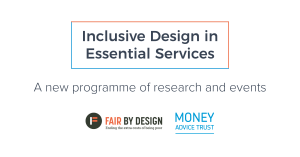
Tag Archives: energy
Moving Forward Together on Consumer Experience
UKRN, with the FCA, Ofcom, Ofgem, Ofwat and CCWater, have worked together to develop a set of performance scorecards to measure the customer experience across key sectors. You can now access the scorecards for financial services, communications, energy, and water in one place – with consumer metrics covering service quality, price differentials and satisfaction levels.
#esanevent stimulates debate on consumer voice
On Wednesday 2 November, 18 speakers and 92 delegates came together at the iconic BT Tower for the ESAN Conference: How can the consumer voice be better heard in the regulation of essential services? “Fantastic speakers, great content, excellently chaired” #esanevent

Ofgem proposals for prepay customers
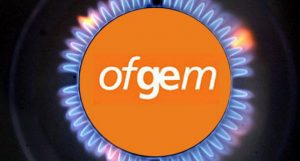 Ofgem’s consultation on proposals to improve outcomes for prepayment customers ends 25 February 2016.
Ofgem’s consultation on proposals to improve outcomes for prepayment customers ends 25 February 2016.
The proposals are designed to:
- help PPM customers to access more competitive tariffs
- address the costs consumers can face, ensuring these do not fall disproportionately on those least able to afford them, and
- ensure that PPM customers are treated fairly by their energy providers.
Priority Services for energy consumers
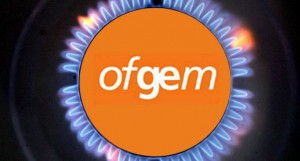 On 17 December 2015, Ofgem published its final proposals for the Priority Services Register, considered integral to its consumer vulnerability strategy. The aim is to ensure that existing services relating to safety, access and communication in the energy market meet the needs of consumers in vulnerable situations.
On 17 December 2015, Ofgem published its final proposals for the Priority Services Register, considered integral to its consumer vulnerability strategy. The aim is to ensure that existing services relating to safety, access and communication in the energy market meet the needs of consumers in vulnerable situations.
Priority Services Register Review – Final Proposals
The consultation closes on 18 February 2016.
Ofgem consults on Priority Services
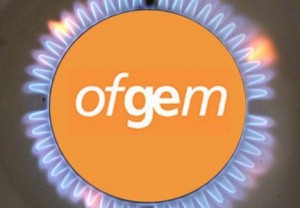 Ofgem is reviewing its work on priority services.
Ofgem is reviewing its work on priority services.
Consultation closes 22nd September 2014. Read more here.
Ofgem says:
Gas and electricity are essential services. Providing extra services to people who need them to access the market and stay safe remain critically important. This consultation seeks views on proposals that require suppliers, electricity distribution network operators and gas distribution networks to:
•provide additional non-financial services to energy consumers who are more likely than a typical consumer to experience problems with communication, safety and supply;
•take reasonable steps to identify people who would benefit from these services;
•share consumer information with each other and other utility companies, using vulnerability indicators agreed between them;
•raise awareness of services, including developing a single cross-industry brand; and
•conduct annual independent audits of their performance and publish findings yearly
Ofgem reports fall in price differences between payment methods
 Ofgem has analysed differences in price between different payment methods used by consumers following an information request to suppliers in February 2014. It has found that the gap between prepayment and direct debit has narrowed since 2009. Read more here.
Ofgem has analysed differences in price between different payment methods used by consumers following an information request to suppliers in February 2014. It has found that the gap between prepayment and direct debit has narrowed since 2009. Read more here.
Background
Ofgem rules allow suppliers to charge different prices for different payment methods, but only if the amount reflects the cost of providing those accounts. Some larger suppliers do spread some of the costs of prepayment customers among the whole of their customer base. This is consistent with regulations and guidance, which allow for differences. These result in reduced price differences for vulnerable customers, who often do not have the option of alternative payment methods. Suppliers can also charge the same price regardless of payment method, so they can spread the costs they incur across all customers. However, the majority of consumers pay by direct debit (including half of all fuel-poor households) so any change would mean these consumers would pay more.
Findings
Customers who use prepayment meters are now charged around £80 a year more on average compared with direct debit customers for dual fuel. This is a significant fall as the difference was almost £140 in 2009. Ofgem is satisfied that across the market the price on different payment methods reflects the varying costs suppliers face in providing them. The price difference for quarterly payment compared to direct debit has remained at around £80 since 2009.
Ofgem reports on Time of Use tariffs
As part of the Smarter Markets Programme, Ofgem commissioned the Centre for Sustainable Energy (CSE) to undertake analysis of domestic electricity use patterns and to model the potential distributional impacts of time of use (ToU) tariffs (energy tariffs with different prices at different times).
Ofgem has published CSEs report – see here for more. The tariff modelling undertaken by CSE demonstrates the potential impacts of a ToU tariff on different consumers’ bills. It shows that the types of customers that benefit from ToU tariffs will depend on their current usage as well as how they respond and the types of ToU tariffs on offer.
for more. The tariff modelling undertaken by CSE demonstrates the potential impacts of a ToU tariff on different consumers’ bills. It shows that the types of customers that benefit from ToU tariffs will depend on their current usage as well as how they respond and the types of ToU tariffs on offer.
The publication of this research represents a first step in seeking to understand how ToU tariffs may impact on different customers. Ofgem envisage undertaking further distributional analysis as they make progress towards specific policy decisions as part of the individual projects under the Smarter Markets Programme.
DECC consults on the future of the Energy Company Obligation
 Today DECC published the consultation document on the future of the Energy Company Obligation (ECO). The consultation will run from 5th March to the 16th April.
Today DECC published the consultation document on the future of the Energy Company Obligation (ECO). The consultation will run from 5th March to the 16th April.
DECC says:
The majority of these proposals were highlighted as part of Government’s announcement on 2 December 2013. As set out in the December announcement we are proposing these changes to reduce pressures on consumer bills and ensure ECO provides value for money for energy consumers; while continuing to help tackle fuel poverty, support the development of sustainable energy efficiency supply chain and improve the energy efficiency of our housing stock.
While it is clearly right that we look to ensure government policies do not unreasonably impact on consumer bills, we also recognise the impact of these proposals on the energy efficiency market. In particular we recognise that the uncertainty created by the proposed changes has had an effect on delivery on the ground and that consequently the supply chain has seen a contraction in demand.
This consultation is a key opportunity to make sure we implement these changes as effectively as possible, taking into account industry needs and the experience of ECO delivery over the last year.
Consultation closes 16th April 2014.
Read more here.
Welfare reform: implications for utility companies and creditors
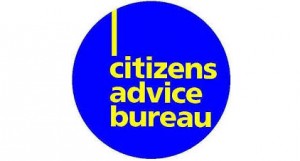 This paper by Citizens Advice summarises the changes to benefits that have already taken effect and those still to come, and looks at what companies can do to identity customers in difficulty. It outlines steps companies can take to understand their customers, to proactively work with them, forbear from taking action that may make matters worse, and refer on those who need help.
This paper by Citizens Advice summarises the changes to benefits that have already taken effect and those still to come, and looks at what companies can do to identity customers in difficulty. It outlines steps companies can take to understand their customers, to proactively work with them, forbear from taking action that may make matters worse, and refer on those who need help.
It is also important that creditors are proactive in looking out for signs of potential financial difficulty and offering support accordingly. Forbearance and breathing space from their creditors will help customers who are having to adapt to a reduced income or a change in the way that their benefits are paid to avoid reaching breaking point.